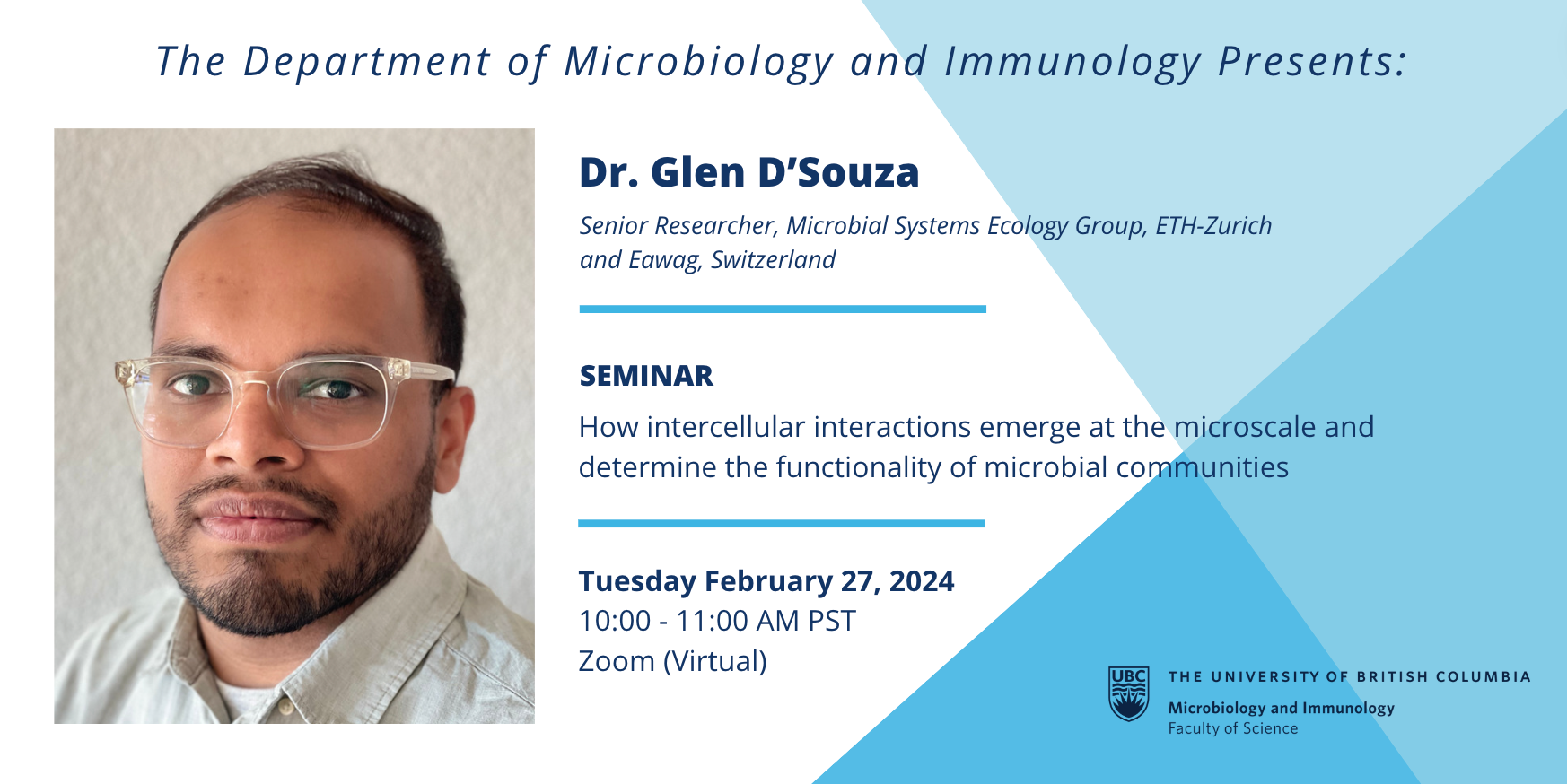
Seminar: How intercellular interactions emerge at the microscale and determine the functionality of microbial communities
Abstract: Microbial cells operate as part of collectives, engage in interactions and their activity at the microscale influences biogeochemical processes at the global scale ultimately affecting health of plants, humans or animals. Despite the ubiquity of collective behaviors and interactions within microbial assemblages, their emergence, impact on metabolism and functionality of communities is poorly understood. My work bridges these knowledge gaps through quantitative investigations of microbial growth, metabolism and behaviour at the level of single cells within communities. In this talk, I will present four emerging principles on the development of collective behaviours and interactions in microbial communities. I will show that bacterial cells form collectives in order to degrade complex polysaccharides but disperse when simpler oligosaccharides become available in the environment. I will show how the strength of collective behaviors is dependent on the ability of cells to secrete extracellular enzymes that degrade polysaccharides. I will show that the presence of cross-feeder species, that cannot degrade polysaccharides and instead consume byproducts released by degraders, alters the microscale spatial distribution of degrader cells, influencing their growth and degradation activities. Finally, I will show that cross-feeder cells can also use antagonism systems to lyse neighboring cells and acquire nutrients for growth. Taken together, the findings from my work elucidate how ecological functionality is governed by collective dynamics emerging from intercellular interactions in natural microbial communities.
Join us on Zoom: https://ubc.zoom.us/j/64277706798?pwd=ME9YanpaQ3B0OUg4akM5YW93WTFZUT09
Meeting ID: 642 7770 6798
Passcode: 909798
Seminar: How intercellular interactions emerge at the microscale and determine the functionality of microbial communities
Abstract: Microbial cells operate as part of collectives, engage in interactions and their activity at the microscale influences biogeochemical processes at the global scale ultimately affecting health of plants, humans or animals. Despite the ubiquity of collective behaviors and interactions within microbial assemblages, their emergence, impact on metabolism and functionality of communities is poorly understood. My work bridges these knowledge gaps through quantitative investigations of microbial growth, metabolism and behaviour at the level of single cells within communities. In this talk, I will present four emerging principles on the development of collective behaviours and interactions in microbial communities. I will show that bacterial cells form collectives in order to degrade complex polysaccharides but disperse when simpler oligosaccharides become available in the environment. I will show how the strength of collective behaviors is dependent on the ability of cells to secrete extracellular enzymes that degrade polysaccharides. I will show that the presence of cross-feeder species, that cannot degrade polysaccharides and instead consume byproducts released by degraders, alters the microscale spatial distribution of degrader cells, influencing their growth and degradation activities. Finally, I will show that cross-feeder cells can also use antagonism systems to lyse neighboring cells and acquire nutrients for growth. Taken together, the findings from my work elucidate how ecological functionality is governed by collective dynamics emerging from intercellular interactions in natural microbial communities.
Join us on Zoom: https://ubc.zoom.us/j/64277706798?pwd=ME9YanpaQ3B0OUg4akM5YW93WTFZUT09
Meeting ID: 642 7770 6798
Passcode: 909798

